Unobtrusive Monitoring of Pilot Health, Performance, and Safety indicators for the Future Vertical Lift Program
Aptima receives Defense Health Agency contract for ‘CrewCare-HHS,’ a helmet-integrated multimodal sensor system to ensure pilot safety and well-being
Aptima, Inc., a trailblazer in leveraging artificial intelligence and advanced analytics to enhance mission readiness, announced today that it has received a Defense Health Agency Phase I Small Business Innovative Research (SBIR) award to develop a helmet-based system to continuously monitor pilot physiological, cognitive, and trauma states for real-time signs of decreased performance or traumatic health issues.
CrewCare-HHS: CrewCare-Helmet Health System
The ambitious Future Vertical Lift (FVL) program aims to advance military helicopter technology, introducing AI-enabled systems and increased complexity. In this context, the role of the lone pilot becomes even more critical, necessitating real-time health and performance monitoring. To address this challenge, Aptima and partners at The University of Toledo, NextFlex, and AAMplified Solutions, are developing the CrewCare-Helmet Health System (CrewCare-HHS). CrewCare-HHS comprises an unobtrusive multimodal sensor on the forehead, a modular data analytics framework, and a compact edge processing unit. The sensor employs photoplethysmography, accelerometry, and pressure sensing to monitor vital signs, cognitive load, and traumatic events. The modular framework allows easy integration of new data streams and analytics. CrewCare-HHS’s Phase I designs will have a compact, low profile, minimally intrusive footprint, making it compatible for integration with Army helicopter pilots’ current helmet.
Future iterations of the prototype can include approved protocols for communicating notifications or intervention recommendations as soon as deleterious physiological states or subpar performance is detected to enable interventions from other personnel or automated systems.
Aptima’s Sensor-based Assessment Technologies
CrewCare-HHS is a member of Aptima’s Sensor-based Assessment Technologies (SAT) portfolio of technologies that utilize signals from the brain and body to inform performance-optimizing solutions that accelerate learning and optimize human-machine teaming. SAT leverages a wide range of multimodal data, from neuroimaging devices such as EEG and fNIRS, to computerized software for email and cognitive task performance. With SAT, data-derived insights provide objective feedback about individual internal conditions and abilities that would otherwise go unnoticed. As a result, individuals, supervisors, and even computerized co-workers (systems-as-teammates, automated assistants) can make informed adjustments to enhance safety and efficiency.
Aptima welcomes the adoption or merging of your technology with one or more of our SBIR Topics. We are eligible for SBIR Enhancement funding, as well as TACFI and STRATFI awards, all of which are sole source.
For more information, please contact aptima_info@aptima.com.
U.S. Army photo by Spc. David Poleski




